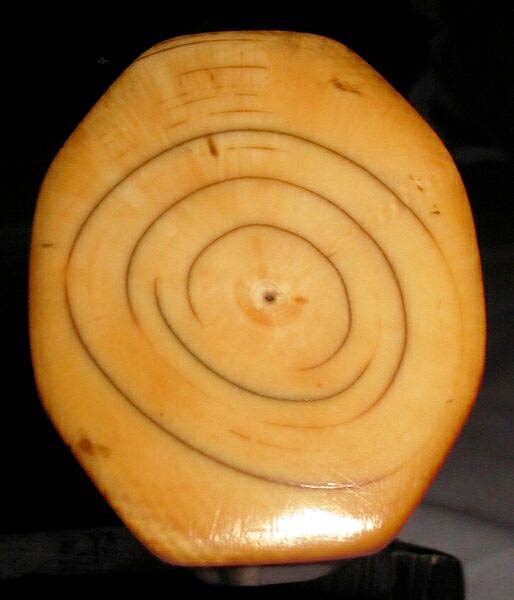Quote:
|
Originally Posted by Ian
The depth of color seems to vary a lot, but in general I think ivory gets darker with age and handling. I have several old ivory-hilted dha from Burma and Thailand that have ivory that is quite dark, almost as though it has been smoked.
I think that body oils (grease) get transferred during handling and carrying and this is mainly responsible for the color change. Add a little dirt (as seen in the fine cracks) and we end up with the familiar look of old ivory.
Dugong (sea cow, manatee) ivory has a distinct reddish hue to it. I've now seen several illustrated examples and I believe that I own a kris with dugong ivory (at least it was sold to me as dugong ivory by a Filipino dealer in Manila whom I have dealt with for many years, and it matches the color of the dugong hilt in Cato).
Ian.
 |
I'm seeing cross hatching on the left bottom corner in picture two which brings up a question ; do all ivory types (Marine ivory included) show this distinctive pattern ?

Panday , that Sea Cow ivory looks very porous in cross section .
Interesting .....
Rick



